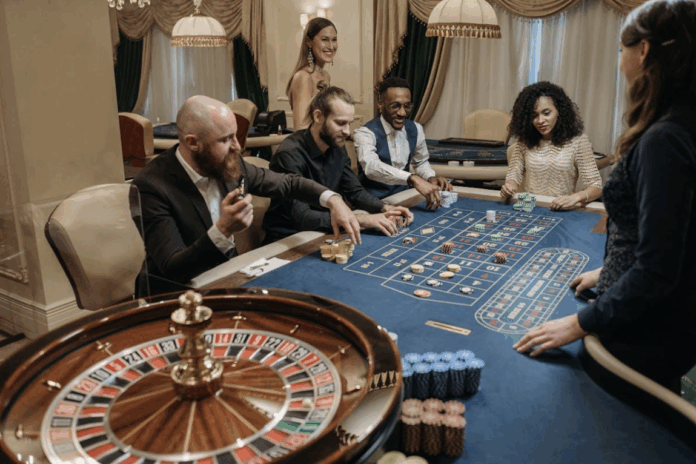Casino rewards programs usually focus on points, perks, and shiny tier names, yet most people rarely stop to ask what these systems are designed to reward. The mechanics behind the standard slogans tell a deeper story about how entertainment platforms encourage consistent engagement. When readers understand the logic behind loyalty systems, they can enjoy the perks while keeping their relationship with games grounded and clear.
Why the language feels familiar
Nearly every digital service now uses some version of a loyalty loop. Food delivery apps show streaks, streaming platforms highlight personalized badges, and fitness apps celebrate milestones. Casino loyalty programs borrow the same behavioral principles. They reward activity first and outcomes second. This is important because games do not change their odds in response to loyalty status. Points and perks sit outside the gameplay itself, not inside it.
Where many players get confused is in the language. When a slogan says win more, it often refers to comp points or tier progression, rather than any shift in game mechanics. These points generally accumulate based on total wagering. A wager is simply the amount a person chooses to stake on a game. Understanding this distinction is the key to reading any loyalty message with confidence.
How rewards appear around specific game categories
A clearer view emerges once we look at how loyalty information shows up inside real lobbies. Imagine someone browsing a section dedicated to real money online roulette. They might land on a page that outlines roulette variants, describes how the games work, and highlights wider features on the site, including references to the rewards ladder.
The layout often includes descriptions of different roulette versions, along with notes on how activity in real money online roulette contributes to earning points across the broader program. These mentions help people understand where their play fits within a multi-game environment. They do not change the odds, and they do not influence how the wheel behaves. What does change is the pace of point accumulation.
Slot players usually move faster through reward tiers because the wagering cycle is quicker and more continuous. Table game players progress at a steadier rate. This difference shows how the same slogan can take on new meaning depending on the category being played. Roulette sections generally use calmer, more informational wording, while slot pages often use brighter, faster language. Recognizing these differences helps readers understand how design choices shape their sense of value without altering the games themselves.
How marketing compresses these ideas into short slogans
Right after encountering loyalty details on a roulette page, people might see the same ideas compressed into short social posts. An example from Instagram encourages players to enjoy more games in the hopes of winning more points.
It promotes things like tournament tickets and free spins. This type of content demonstrates how a complex program is reduced to a five-word message. The tone is upbeat and energetic. Yet the core mechanic remains the same as on the site. Points rise with overall wagering, not with outcomes or changes in game odds. The social messaging simply communicates the feel of progression, not the underlying mathematics.
What is actually being rewarded
Points generally feed into a tier ladder. Reaching higher tiers may unlock small conveniences, such as faster redemptions, priority support, or occasional extras. These perks reward regular engagement, rather than gameplay performance. A person who plays slowly for an hour may earn comparable points to someone who plays quickly for a shorter time because the system measures activity.
Behavioral researchers often describe this approach as a reinforcement loop. The reward does not need to be large. It only needs to appear frequently enough to feel satisfying and further encourage a repeatable action from the player. Small markers of progress keep people connected to an activity over time.
Simple questions that help readers stay grounded
Readers can approach these systems more clearly by asking three short questions.
- What action is being measured? If the answer is total wagering, then the program is rewarding the volume and consistency of play.
- Does my tier change the odds of the game? The answer is usually no. Game odds are fixed and remain separate from loyalty perks.
- Does the reward add something I genuinely value to my entertainment time? If yes, then it is easier to enjoy the perks without assigning them financial meaning.
Why clarity protects enjoyment
Many people enjoy rewards because they create mini goals in an open-ended activity. When readers understand how those goals are constructed, the slogans lose their mystery. That clarity protects the entertainment experience because they know exactly what is changing and what is not. It becomes easier to appreciate rewards as optional extras, rather than something that influences gameplay.
Interpreting the phrasing
Casino loyalty messages become easier to interpret once the phrasing is understood. Slogans highlight engagement, rather than performance. Rewards rise with activity, rather than outcomes. Roulette remains roulette, and odds remain steady, no matter the tier. By learning how to read bonus phrases accurately, players gain agency. They can recognize what feels meaningful to them and filter out what does not. This helps keep entertainment informed, balanced, and enjoyable.


